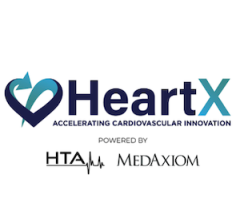
June 13, 2023 — A recent study highlights that implantable cardioverter-defibrillator (ICD) patients with new-onset atrial high-rate episodes (AHRE) often show high stroke risk while not being on oral anticoagulation (OAC), underlining the relevance of continuous AHRE burden monitoring.1 The study also reports that the combination of BIOTRONIK’s unique DX ICD system with Home Monitoring is an effective and convenient way to detect AHRE.1
REACT DX is a prospective, multi-center registry that enrolled 234 de novo ICD patients from 14 centers in Germany. It assessed the incidence of new-onset AHRE in an ICD population and the physicians’ reaction using the DX ICD system, a single-chamber ICD enhanced with a floating atrial sensing dipole. Performed in a real-life setting, REACT DX demonstrated the in-practice utility of DX Technology in combination with Home Monitoring for remote AHRE detection, atrial fibrillation (AF) diagnosis and subsequent therapy decision making.
"AHRE can be a precursor or subclinical form of AF, which can increase the risk of stroke and other cardiovascular complications. Its timely detection and burden assessment is therefore crucial for a timely response, for example in the form of stroke prevention," says PD Dr. Carsten Lennerz, Senior Physician, German Heart Centre Munich, Department of Electrophysiology, Technical University of Munich, Germany. "As demonstrated by the study, the detection of new-onset AHRE by the DX ICD system in combination with Home Monitoring often led to initiation of oral anticoagulation for stroke prevention."
However, the study findings suggest that the time period until therapy initiation could be reduced further. To support this and harness the full potential of DX and Home Monitoring, the study authors propose a specific protocol for managing remotely detected AHRE. This protocol, a simple decision tree, is based on each patient’s AHRE burden and stroke risk and aims to improve response times for OAC prescription.
"The results of the REACT DX registry further strengthen the already substantial body of clinical evidence supporting the value of DX Technology in combination with Home Monitoring. Moreover, they emphasize the potential benefits for patients and clinicians, paving the way for more prompt, precise and patient-specific care. We are committed to providing innovative healthcare solutions that deliver real-world results and empower clinicians with tools which can ultimately improve patient outcomes," said Dr. Andreas Hecker, President CRM/EP at BIOTRONIK.
The REACT DX study adds to the body of research supporting the benefits of DX Technology, extending the clinical evidence. Notably, the MATRIX study, the largest clinical evaluation of DX Technology to date2, has also recently been published.
For more information: https://www.biotronik.com/en-de
References:
- O'Connor, Matthew et al. (2022): REACT DX registry: Real world REACTion to atrial high rate episodes detected in implantable cardioverter-defibrillator recipients with a DX lead. In Technol Health Care. 2022 Nov 17. doi: 10.3233/THC-220432. Online ahead of print.
- Hindricks G., Theuns, D., Bar-Lev D. et al.: Ability to remotely monitor atrial high-rate episodes using a single-chamber implantable cardioverter-defibrillator with a floating atrial sensing dipole, EP Europace, 2023;, euad061, https://doi.org/10.1093/europace/euad061


 February 18, 2026
February 18, 2026 









